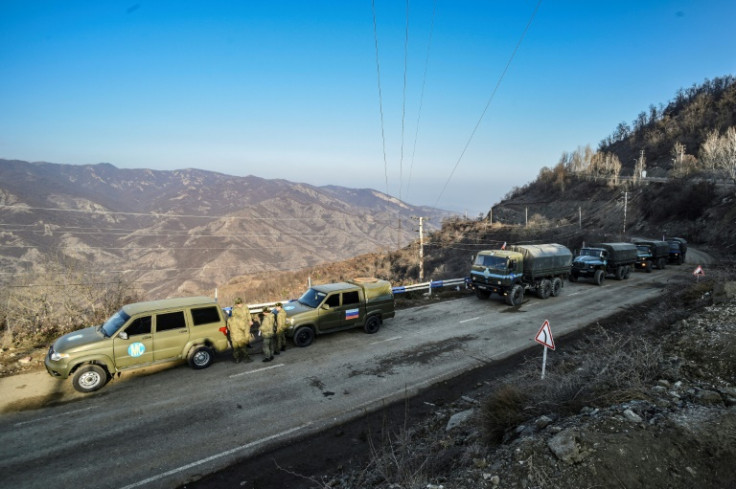'Agreement Within Sight' In Armenia-Azerbaijan Talks: Blinken

Negotiations between Armenia and Azerbaijan in Washington have made "tangible progress" and an agreement on resolving tensions is within reach, US Secretary of State Antony Blinken said Thursday.
But four days of talks in Washington between Armenian Foreign Minister Ararat Mirzoyan and Azerbaijani Foreign Minister Jeyhun Bayramov did not conclude with any deal to end the decades-long territorial conflict between the two ex-Soviet republics.
"The two sides have discussed some very tough issues over the last few days, and they've made tangible progress on a durable peace agreement," Blinken said wrapping up the talks.
"I hope that they see and I believe that they do as I do, that there is an agreement within sight, within reach," he said.
"Achieving that agreement would be, I think, not only historic but would be profoundly in the interests of the people of Azerbaijan and Armenia," the top US diplomat said.
Officials from the two countries did not speak publicly after the talks closed and there was no formal statement.
But Blinken praised Mirzoyan and Bayramov for their leadership and encouraged them to keep pushing.
"None of this is easy, but the commitment, the determination to move forward to deal with the remaining challenging issues is real," he said.
The two sides have gone to war twice, in 1990 and 2020, leaving tens of thousands dead, and clashes regularly erupt over Nagorno-Karabakh.
Russia brokered a peace deal three years ago, but there have been clashes since.
Azerbaijan injected new tensions last week when it placed a checkpoint on the Lachin Corridor, the only land link between Armenia and Nagorno-Karabakh, the Armenian-majority enclave inside Azerbaijan.
The talks took place out of the view of media in a secure State Department facility in Arlington, a suburb of the US capital.
There were no details on their substance and how far they aimed to go to resolve the deep differences between the two sides.
Ahead of the talks a US official said they aimed more at just normalizing relations between the two sides, rather than a peace treaty.
"Our goal is to make sure the ministers can sit down and talk to each other," the official said on the basis of anonymity.
Blinken admitted there were still tough challenges ahead, and offered continued US support for negotiations.
"The last mile of any marathon is always the hardest. We know that," he said.
"But the United States is here to continue to help both of our friends cross the finish line."
Earlier this week however Russia said there was "no alternative" to a deal it signed with the two warring countries in 2020.
"For the moment, there is no other legal basis that would help a resolution. There is no alternative to these trilateral documents," Kremlin spokesman Dmitry Peskov told reporters on Tuesday.
Initiatives to lower tensions in the region "are possible above all on the basis of the trilateral documents signed with Russia," he said

© Copyright AFP 2024. All rights reserved.




















